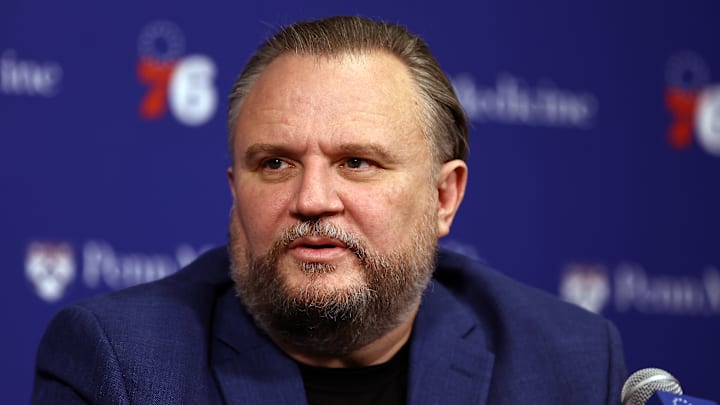Injuries forced the Philadelphia 76ers to punt the 2024-25 season and become sellers at the trade deadline to dodge the luxury tax threshold. As it turns out, Philadelphia could have similar plans under the right set of unfortunate circumstances.
Bobby Marks of ESPN reported on Monday that Joel Embiid and Paul George’s health will play a role in the 76ers’ trade discussions. If Philadelphia endures similar struggles as last year, cost-cutting can once again be the route it takes. The 76ers play their first game of the season against the Boston Celtics on October 22nd at 7:30 p.m. EST while Embiid and George’s statuses remain uncertain.
Why does the luxury tax matter?
While being over the tax line may seem like a team-building setback, it primarily affects Josh Harris’ bank account. Luxury tax teams typically pay dollar-for-dollar on the amount over the threshold they’re at. Penalties gradually increase if a team is in the tax for consecutive years.
The 76ers are roughly $5.8 million above the $187.9 million luxury tax threshold after Quentin Grimes opted into his $8.7 million qualifying offer on Wednesday. If Philadelphia were to avoid the luxury tax, all it would need to do is salary-dump Kelly Oubre Jr, who opted into his $8.4 million player option on June 29th.
This isn’t anything new
Observant fans may have noticed that Philadelphia executed deals at the past three trade deadlines that separated it from the luxury tax.
Most recently, Philadelphia traded Caleb and KJ Martin, as well as Reggie Jackson, in February to acquire Grimes and Jared Butler, thereby gaining financial flexibility from both tax and roster-building standpoints.
In previous seasons, the 76ers dealt Matisse Thybulle to the Portland Trail Blazers in a four-team trade, which netted them Jalen McDaniels from the Charlotte Hornets on February 9, 2023. Philadelphia was able to escape the tax after dealing a fan-favorite.
With Embiid suffering a torn left meniscus in January 2024, the 76ers made a flurry of moves that dodged additional fees and offered salary cap flexibility. Philadelphia walked away from the 2024 deadline with Buddy Hield and Cameron Payne at the expense of Danuel House Jr, Marcus Morris Sr, Furkan Korkmaz, Patrick Beverley, and Jaden Springer.
From the outside looking in, it’s unfair to conclude that the 76ers executed all of these trades to duck the luxury tax. However, in two of the last three times Philadelphia escaped the tax line, its season was derailed by injuries, which gave it an incentive to do so. If the 76ers are healthy and competitive, it will be interesting to see how the front office navigates the 2026 trade deadline.
